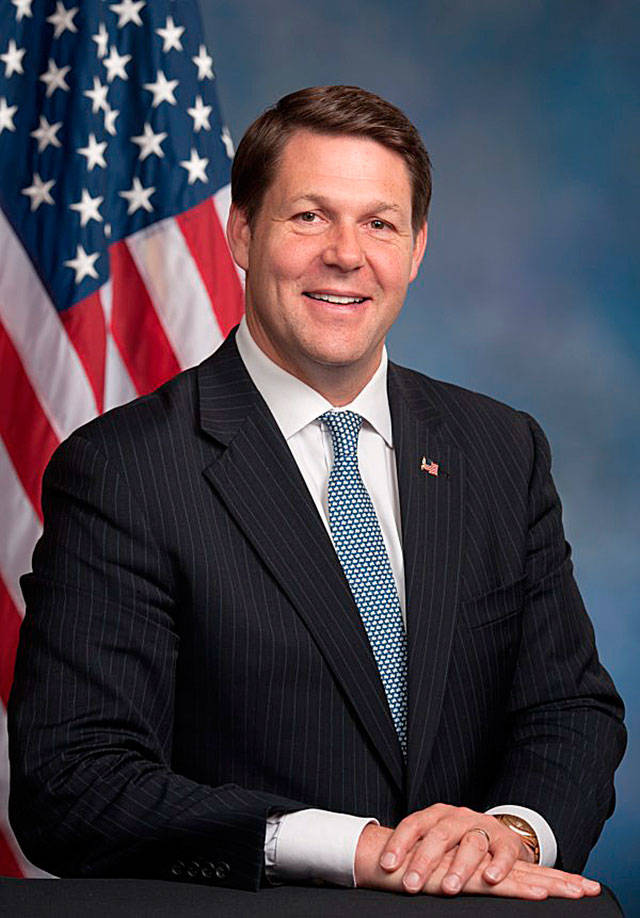By Caitlin Dewey, The Washington Post
One lawmaker is citing a godly reference to justify changes to the Supplemental Nutrition Assistance Program. Rep. Jodey Arrington, R-Texas, recently quoted the New Testament to question the strength of current work requirements.
The biblical passage, 2 Thessalonians 3-10, was a rebuttal to one of the hearing’s expert witnesses, a representative of the Jewish anti-hunger group MAZON. (He referenced Leviticus.) It is also a familiar refrain to anyone who has watched past debates about SNAP.
House Republicans have historically cited the verse — “if a man will not work, he shall not eat” — as justification for cutting some adults’ SNAP benefits. Arrington referenced the verse in a discussion about increasing the work requirements for unemployed adults on the food stamp program.
But critics say that advances a pernicious myth about the unemployed who receive SNAP.
The verse in question applies specifically to people who can work or otherwise contribute to society but choose not to, theologians from several denominations told The Post. There is a perception, among some voters and lawmakers, that many adult SNAP recipients are exactly this sort of “freeloader.”
Policy experts say that is not the case. Many unemployed adults on SNAP simply cannot work, they say.
“The Scripture, tells us in 2 Thessalonians chapter 3:10 he says, uh, ‘for even when we were with you, we gave you this rule: if a man will not work, he shall not eat.’ And then he goes on to say ‘we hear that some among you are idle’,” Arrington said. “I think it’s a reasonable expectation that we have work requirements.”
The debate comes at a time of increased Republican concern about work requirements and welfare programs. The failed Republican repeal-and-replace health-care plan included such requirements for Medicaid recipients; House Speaker Paul Ryan also championed them. And earlier this week, Rep. Glenn Grothman, R-Wis., introduced a bill that would prevent the secretary of agriculture from granting temporary SNAP work-requirement waivers to states with high rates of unemployment.
“No one is suggesting that people who don’t want to work should get benefits,” said Josh Protas, the vice president of public policy at MAZON who testified at the hearing. “There are stereotypes about SNAP recipients and myths about the program … that are very harmful to people in need who could take advantage of it.”
Americans have grown increasingly suspicious of people who use the social safety net. That suspicion has fallen largely on a group called unemployed “ABAWDs” — able-bodied adults without dependents, and without steady jobs.
This population represents only a small minority of SNAP users. According to the Department of Agriculture,only 14 percent of all SNAP participants work less than 30 hours per week.
But the 6 million or so who are not employed receive a great deal of attention. This is a diverse population, experts say, who face a variety of barriers to employment.
Local surveys of SNAP users have shown that many adults who are not working have recently been released from jail — or are homeless, veterans, noncustodial parents, people with undiagnosed mental illnesses and teenagers aging out of the foster care system.
Still more may lack the skills or education needed to obtain work in their community — particularly if their community has a high unemployment rate, said Stacy Dean, the vice president for food assistance policy at the nonpartisan Center on Budget and Policy Priorities.
Since 1996, the SNAP program has set a three-month time limit on unemployed ABAWDs’ eligibility. If they don’t get a job within three months of starting benefits, they’re kicked off the program, even if they’re actively seeking employment. Some states have also used USDA funds to establish even stricter work programs than those at the federal level.
Nonetheless, there remains a persistent misconception that many unemployed SNAP participants simply don’t “want” to work.
Arrington’s office did not return a request for further explanation on how he intended the quote to be understood. But the freshman Congressman has said that his Presbyterian faith “motivates” his work.
Before Arrington, 2 Thessalonians was used by Reps. Kevin Cramer, R-N.D., and Stephen Lee Fincher, R-Tenn., to justify cutting food stamps during the 2013 Farm Bill.
The passage, written by Saint Paul, was not addressed to the poor or hungry generally, said the Rev. David Beckmann, a Lutheran pastor and the president of the faith-based anti-hunger organization Bread for the World. It was written to a specific sect of early Christians, who had abandoned many aspects of their regular lives because they believed the apocalypse was imminent.
“The sin is sloth, indolence, inactivity,” echoed Al Mohler, the president of the Southern Baptist Theological Seminary, a prominent evangelical school. “This is not an issue of inability. I don’t think it has been, in the history of the church.”
Talk to us
> Give us your news tips.
> Send us a letter to the editor.
> More Herald contact information.

























